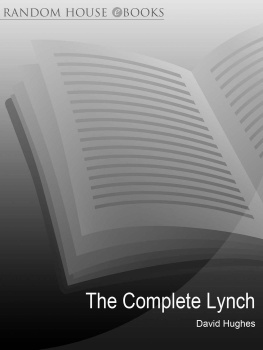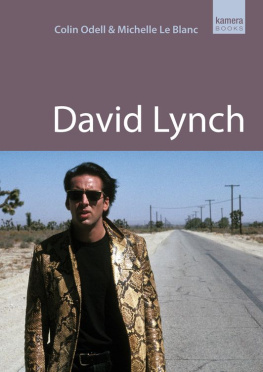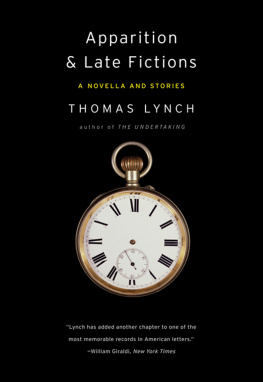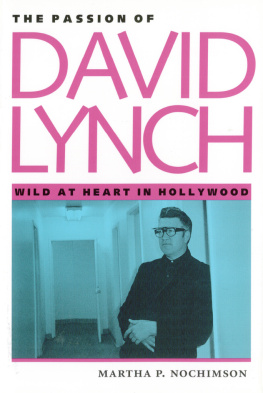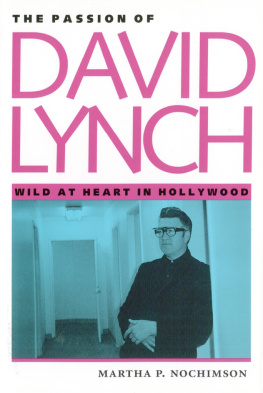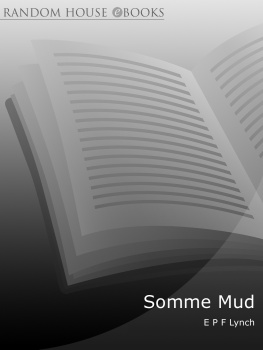Neofetou - Good day today: David Lynch destabilises the spectator
Here you can read online Neofetou - Good day today: David Lynch destabilises the spectator full text of the book (entire story) in english for free. Download pdf and epub, get meaning, cover and reviews about this ebook. City: Winchester;UK, year: 2012, publisher: John Hunt Publishing;Zero Books, genre: Science. Description of the work, (preface) as well as reviews are available. Best literature library LitArk.com created for fans of good reading and offers a wide selection of genres:
Romance novel
Science fiction
Adventure
Detective
Science
History
Home and family
Prose
Art
Politics
Computer
Non-fiction
Religion
Business
Children
Humor
Choose a favorite category and find really read worthwhile books. Enjoy immersion in the world of imagination, feel the emotions of the characters or learn something new for yourself, make an fascinating discovery.

Good day today: David Lynch destabilises the spectator: summary, description and annotation
We offer to read an annotation, description, summary or preface (depends on what the author of the book "Good day today: David Lynch destabilises the spectator" wrote himself). If you haven't found the necessary information about the book — write in the comments, we will try to find it.
Neofetou: author's other books
Who wrote Good day today: David Lynch destabilises the spectator? Find out the surname, the name of the author of the book and a list of all author's works by series.
Good day today: David Lynch destabilises the spectator — read online for free the complete book (whole text) full work
Below is the text of the book, divided by pages. System saving the place of the last page read, allows you to conveniently read the book "Good day today: David Lynch destabilises the spectator" online for free, without having to search again every time where you left off. Put a bookmark, and you can go to the page where you finished reading at any time.
Font size:
Interval:
Bookmark:
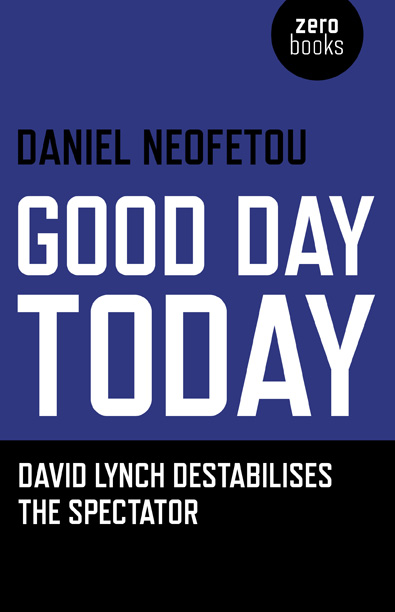
Daniel Neofetou

Winchester, UK
Washington, USA
FIRST PUBLISHED BY ZERO BOOKS, 2012
Zero Books is an imprint of John Hunt Publishing Ltd., Laurel House, Station Approach,
Alresford, Hants, SO24 9JH, UK
office1@jhpbooks.net
www.johnhuntpublishing.com
www.zero-books.net
For distributor details and how to order please visit the Ordering section on our website.
Text copyright: Daniel Neofetou 2012
ISBN: 978 1 78099 767 4
All rights reserved. Except for brief quotations in critical articles or reviews, no part of this book may be reproduced in any manner without prior written permission from the publishers.
The rights of Daniel Neofetou as author have been asserted in accordance with the Copyright,
Designs and Patents Act 1988.
A CIP catalogue record for this book is available from the British Library.
Design: Stuart Davies
Printed and bound by CPI Group (UK) Ltd, Croydon, CR0 4YY
We operate a distinctive and ethical publishing philosophy in all areas of our business, from our global network of authors to production and worldwide distribution.
THIS BOOK IS DEDICATED TO MY FAMILY, FRIENDS, WELL-WISHERS AND ACADEMIC EQUALS OR SUPERIORS PAST AND PRESENT; TO MUM, DAD, KATIE, GRANNY & GRANDPA, HAMISH, OLLIE, GILES, WENDY AND THE REST OF MY FAMILY; TO JON, KRIS, JAMES, JONNY, REEM, J.V., MIKE, LUKE, TTE & KRYSTAL, FIL, TALI, CALPAL, BEN, TRIBES, DAN M, DAN B, HENRY LAU, KEVIN & THE PIGEONS, JASON, J. NUNN & S. EDMONDSON, NICK CHEN, BOSBORN & NINA, HILSDON, BRUTAL POWELL, KENDO AND THE REST OF MY WARWICK UNI PALS; FROM MY YEAR AT EDINBURGH (DURING WHICH THIS BOOK WAS CONCEIVED AND WRITTEN AS A DISSERTATION): BAZ, MARTY, MARCUS, SEAN, GAO GAO, ALICE, HEATH, OLI; TO ALL THE WHITE CUBE INVIGILATORS; TO TUTORS I'VE HAD THROUGH THE YEARS WHO EXPOSED ME TO IDEAS WHICH INFORMED THIS BOOK, SUCH AS HELMUT SCHMITZ, MICHAEL GARDINER, JOSE ARROYO, CHARLOTTE BRUNSDON, MATINE BEUGNET AND DAN YACAVONE; TO ALL THE (MOSTLY DEAD) PEOPLE WHOSE WRITING HAS INSPIRED ME. AND TO LEAH.
A few years ago I was working on a short film which one of my friends was directing. During shooting, a lot of the cast and crew were staying at his house, and one night a few of us decided to watch David Lynchs Eraserhead (1977). By the time the lady in the radiator with lumpy hamster-pouch cheeks performed her foetus-stomping routine, one actor became incredibly frustrated and protested that the film didnt make any sense. I replied with something like It doesnt need to make sense. Just watch it, and a few scenes later, he said It makes a lot more sense now that I know it doesnt need to make sense.
This anecdote serves as an example however minimal of the way in which Lynchs films might change the way a spectator thinks about cultural norms. In this case, Eraserhead engendered the realisation that films dont need to make sense. However, due to its mimetic nature, film is a medium which often works to support cultural norms beyond its concerns as an art-form more so than any other. A pop song might instantiate verse-chorus form or the chromatic scale as somehow natural, yet a film might not only reinforce the rules of continuity editing as natural, but also the rules of current society. It is therefore conceivable that, in terms of films which destabilise their spectator and all but demand a new mode of reception, the inverse is also possible, and the spectator who realises that films dont need to make sense, might realise that many other aspects of life which he/she takes as given do not need to be so.
The notion that film might serve this revolutionarily emancipatory purpose through spectatorial destabilisation is especially crucial now, when the unashamed imposition of ideology by those in power is particularly vigorous. Beyond mass market advertising, whose aggressive promotion of normativity is of course a constant under late capitalism, this is evident in two speeches made by David Cameron, one at a Witney youth centre in the aftermath of the 2011 summer riots across the UK, and another made in December of the same year to the Church of England clergy in Oxford. In the latter, he referred to a (biblical) set of values and morals which make Britain what it is today and blamed virtually every element of social unrest and corruption in banking and politics (all of which, according to Cameron, was obviously the work of errant agents rather than product of the systems themselves) on the dissolution of said set of values and morals. This point of view is one which he espoused to greater and more insidious length in the former speech, in which he proclaimed that we have been unwilling for too long to talk about what is right and what is wrong, as if the world or the nation, even had come to some sort of consensus in these matters.
This appeal to a notional essentialist moral code was not uncommon during the 2011 summer riots, and one of the most obscene examples was provided by Edwina Currie on Newsnight, when she conflated the values of market capitalism with such a supposed code in a clunky rhetorical manoeuvre. This is not the behaviour of a group of people who have any kind of morality, she harped, arguing that the reasons for the disorder did not lie with disenfranchised youth being disconnected from jobs or whatever, but instead asserting that the riots were product of these peoples disconnection from any real sense of right and wrong: any real sense that says whats mine is mine and whats yours is yours, and I dont touch it, as if the concept of private property isnt simply a contingency of capitalism, and has anything to do with a real sense of right and wrong.
In both the speech to the youth centre and the speech to the Church of England clergy, with almost precisely the same wording, Cameron made the grand concluding statement that this moral neutrality, this relativism [is] not going to cut it anymore. But if relativism has proved itself insufficient for Cameron, is the implication that moral absolutism is the answer? It is not as if the representations serving the interests of certain of societys strata are not already hypostasized and the oppressed obfuscated by the dominant discourse in its presentation of the way things are; it is not as if it is not already the case that our supposedly universal international lawcannot be dissociated from certain European philosophical concepts (Derrida, 83). However, the fact that, at the time of writing this introduction, the prime minister of Britain seems to be quite unambiguously laying the foundation for one-size-fits-all authoritarian lifestyle guidelines means that now is a moment when the cultivation of a mindset which refuses to accept norms as pre-given is more crucial than ever, and throughout this book, I argue that the films of David Lynch are well suited to cultivate such a mindset.
Serious discussion of films capacity to essentialise cultural norms and, thereby, the notion that the inverse might also be possible first arose in the post-1968 argument between a politics of subject matter and a politics of subjectivity primarily forwarded and debated in the pages of Screen and in the lively contestation of The London Film-Makers Co-op (Caughie, 106). Premises which arose in these forums pose the conventional feature film as aligned with normalising ideology by its mode of address alone, and one of the most convincing and theoretically rigorous documents from this time is Colin Maccabes essay Realism and the Cinema. In this essay, Maccabe refers to the conventional feature film as classic realist. He defines as classic realist any artwork whether it be a film, painting, book or play -which purports to present some fixed realityfrom an objective point of view which is beyond argument (42-49). Maccabe argues that classic realist works thereby present contingency as pre-given, and that crucial to this normalisation is the third-person address, which Maccabe refers to as the texts metalanguage. In classic realist literature, this metalanguage is comprised of the words within fictions prose which are not enclosed within quotation marks, and which might therefore discuss the veracity of the words within the prose which are enclosed within quotation marks. This metalanguage simply allows reality to appear, and thereby is not open to reinterpretation (Maccabe, 36).
Font size:
Interval:
Bookmark:
Similar books «Good day today: David Lynch destabilises the spectator»
Look at similar books to Good day today: David Lynch destabilises the spectator. We have selected literature similar in name and meaning in the hope of providing readers with more options to find new, interesting, not yet read works.
Discussion, reviews of the book Good day today: David Lynch destabilises the spectator and just readers' own opinions. Leave your comments, write what you think about the work, its meaning or the main characters. Specify what exactly you liked and what you didn't like, and why you think so.

